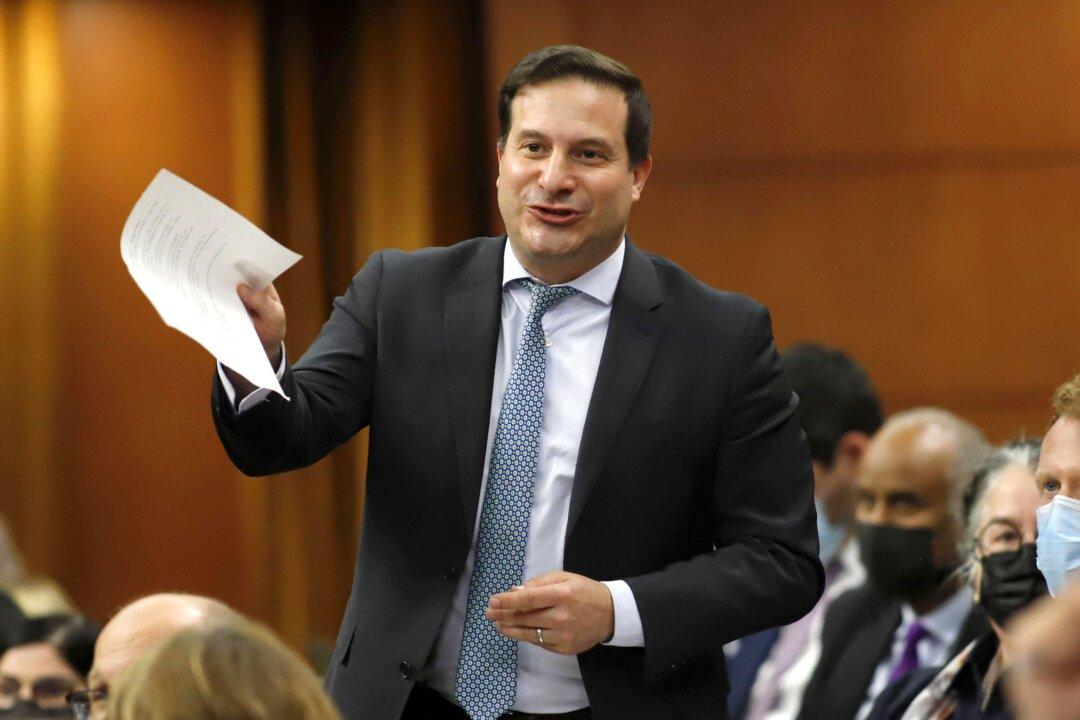A day after his deputy said he was “misunderstood” when saying the government invoked the Emergencies Act based on the advice from law enforcement, Public Safety Minister Marco Mendicino said police requested certain tools that only the act could provide.
“Before we invoked the Emergencies Act, we consulted extensively and meaningfully with law enforcement precisely on the powers that were needed to restore public safety, which then found themselves in the Emergencies Act,” Mendicino told reporters on June 8.





